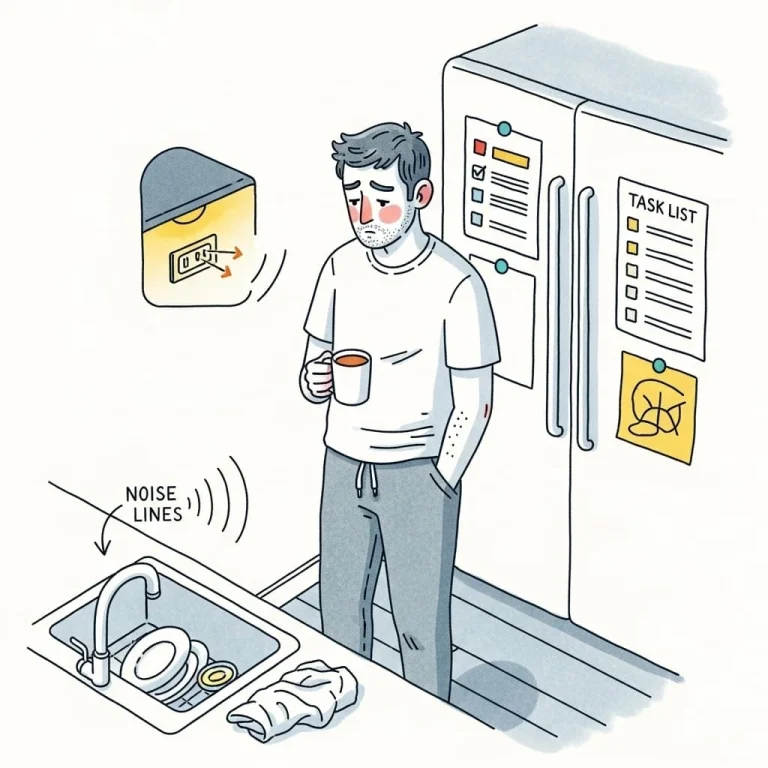The Toll of Caring
Compassion fatigue entails physical and emotional exhaustion and the inability to empathise with others. It is often known as a form of secondary traumatic stress or secondary traumatic stress disorder that results from helping others. While compassion fatigue affects physical and mental health, its symptoms are different to burnout. Compassion fatigue can come on suddenly and without warning, while burnout develops over time.
The nerve cells in the brain, called mirror neurons, are associated with empathy, and research shows that when we witness other people’s pain, we experience it ourselves to some extent. People who devote their lives to providing compassionate help and support are at a bigger risk of developing compassion fatigue.
Establishing Self-Care Practices
Establishing self-care practices helps prevent compassion fatigue. Helping others often starts by helping yourself. These self-care practices sometimes include:
- Being kind to yourself
- Seeking support from friends and family rather than isolating yourself
- Being mindful of your emotions
Taking care of yourself should not be a luxury and is essential for providing long-term caregiving services. Self-care can keep you mentally and physically healthy and protect against developing compassion fatigue. Each person has a different way of taking care of themselves, but some common methods include:
- Eating healthy
- Exercising regularly
- Spending time with family and friends
- Getting a good night’s sleep
- Prioritising hobbies
- Taking time for yourself
Prioritising Personal Well-being
Learning to prioritise personal well-being is about becoming in tune with yourself and caring for your needs. Giving yourself permission to express feelings and emotions and talking about how you feel is essential to creating a supportive environment to work and live in. It is also a big step ahead in making personal well-being a priority.

Prioritising personal well-being is a form of self-preservation, as taking care of yourself is an indispensable part of reaching your full potential and living a joyful, happy life. Creating a positive change within yourself and the environment around you means investing in yourself and becoming your own most valuable asset.
Relaxing and Stress-Reducing Activities
We all have stress responses which are normal reactions to difficult situations that have helped us survive various threats in history. Today, we still face challenging situations in daily life, and we still have the same stress response that we can’t avoid. However, we can develop better ways of responding to stress.
Getting into various relaxing and stress-reducing activities can help with the effects of compassion fatigue. Physical activity can boost the production of endorphins or so-called “happy hormones, ” enhancing well-being. Exercise also helps to refocus your mind on your mood. Finding new hobbies, such as reading, journaling, or hiking, can also help reduce stress.
Life-Work Balance
Maintaining a healthy work-life balance contributes to protecting yourself from compassion fatigue. Only spending time thinking about your work can easily lead to burnout. Studies show that a good work-life balance is becoming extremely important to employees, and making enough time for other activities aside from work helps lower stress and leads to a more fulfilling life.
Although having a good relationship with co-workers is essential, developing and maintaining healthy relationships outside of work is just as important. Connecting with friends outside of work can provide much-needed professional relief and emotional support.
Seeking Support
Continuously giving support to people without self-care can lead to compassion fatigue. Seeking support through a peer support group or professional help can help overcome compassion fatigue.
Network of Supportive Colleagues and Management
Building a network of supportive colleagues that will truly understand what you may be going through can provide you with the support you need to express your thoughts, feelings and emotions.
Having this supportive network can significantly improve your quality of life. It will help you feel less alone and get much-needed advice on handling challenging situations, learning coping skills and sharing your story.


Support From Family and Friends
We, as people, don’t thrive by ourselves. We need friends and family as pillars of support, especially in challenging situations. Having a strong network of support through your friends and family helps improve your mental well-being.
By putting effort and time into maintaining our relationships with friends and family, we can share a supportive environment based on trust.
Professional Support
With the help of professionals and counselling, the weight of burnout and stress can be alleviated. Therapists and experts can help people cope with the symptoms of compassion fatigue by utilising various methods, tools and strategies. Physical or emotional exhaustion can be difficult to manage, and experts can help you overcome your challenges.
Developing Resilience
Resilience is what helps us recover from stress. Although some people seem more naturally resilient than others, resilience is still a skill that can be learned and developed. Resilience is thought of as an ability to adapt and become stronger in challenging times, and it can be a protective method against compassion fatigue, helping to prevent its effects.
The concept of resilience is being implemented and studied by mental health researchers now more than ever to understand and teach people to adapt to stressful events. Resilience is a method to deal with environmental stressors and use internal and external protective factors such as problem-solving skills and emotional intelligence to build a positive support system.
People always rely on their resilience in the face of trauma, injuries or stress to help them overcome feelings of anxiety. It involves a combination of behaviours and thoughts that develop over time and help people go through difficult times.
Self-reflection and Self-awareness
Self-reflection is consciously thinking about your thoughts and behaviours and can help you better look after yourself. Self-awareness allows you to take care of yourself and your well-being and learn how to navigate stressful situations more easily.
Self-reflection is about looking towards the future with a positive mindset and learning to live in the present moment and nurture relationships. It also means learning how to relax after a long day at work and doing what you need to feel happy and healthy. Practising self-reflection and awareness means that when a stressful event comes along, you will be prepared to deal with it in the best way you can.
Building Coping Mechanisms and Adaptive Strategies
Building coping mechanisms that can help you reduce the effects of stress and compassion fatigue is different for every person. Everyone is unique and should find what works for them individually. The idea is to find positive coping strategies to help you feel better, healthier and improve your mental well-being in the long run.
Some of the coping mechanisms and adaptive strategies that can help to combat compassion fatigue include:
- Mediating
- Walking
- Exercising
- Practising deep breathing
- Talking with a friend
- Getting a warm bath
Cultivating Mindfulness
Mindfulness is becoming aware of what you are presently feeling and doing. This is often referred to as being present or “in the moment.” Studies suggest that practising mindfulness improves physical and mental well-being and can help reduce the effects of:
- Depression
- Stress
- Insomnia
- Anxiety
Mindfulness is about being aware and present. When you are fully present in the moment, you are less likely to be caught up in worries about the past or the future. Cultivating mindfulness allows you to defuse all the stressors and anxieties and recognise that this moment is only happening once and right now and is helpful in compassion fatigue prevention.
Promoting a Supportive Work Environment
Promoting a healthy and supportive work environment makes employees feel more comfortable about where they work and who they are. A positive work environment focuses on people’s mental and physical well-being, safety and growth.
Companies that foster a positive work environment see people for who they are and acknowledge that people should enjoy their personal life beyond work. Their time in the office should be productive and fun, where people will feel valued, comfortable and always have the opportunity to learn and grow.
Unique Community Services Promotes a Culture of Self-Care and Well-Being
Unique Community Services prioritises self-care and well-being. We value and acknowledge our clinicians and admire the work that they do. We see their passion, how they provide proactive and compassionate care for the people we support, and how they impact their lives.
We give people a voice and believe individuals can make a real difference by being heard and valued. To thank our clinicians, we create an environment where they can be the best version of themselves by offering outstanding benefits, support and training.
If you want to find out more about what benefits our clinicians receive, contact us today or visit our offices in Manchester and Leeds.




